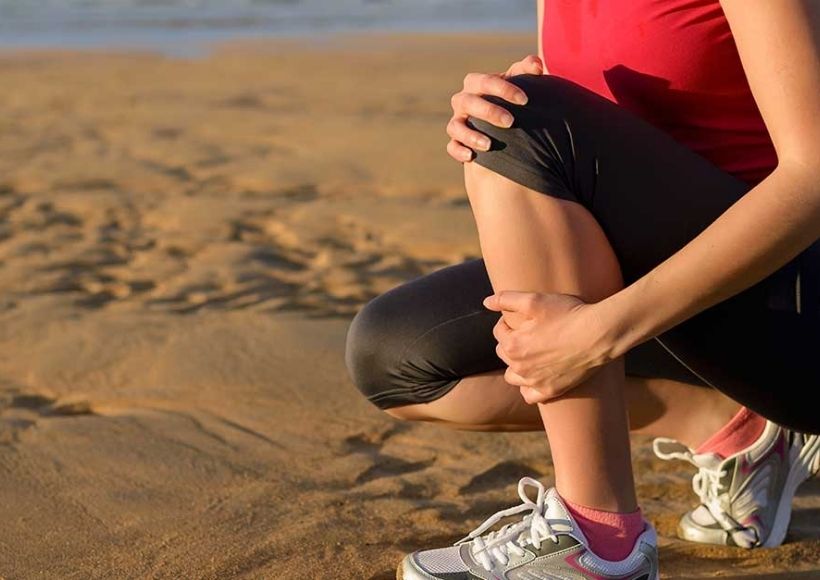Phlebologist: We are sure that you, too, could encounter heaviness in the legs, the characteristic “hum”, edema and severe fatigue of the legs. Some of us, those who walk a lot or, conversely, are inactive during the day, feel these signs. Someone experiences them more often, someone less often, but few associate their appearance with serious health problems
I’m just tired, because I …
… walked a lot;
… sat in an uncomfortable position;
… stood all day.
This is how we explain the feeling when the legs “buzz”, swell, seem heavy. In most cases, none of us runs in such a situation to a phlebologist – a vein specialist – or at least to a therapist, often deciding that it is somehow frivolous to complain to the doctor about leg fatigue.
Well, yes, with whom it does not happen – we think and often ignore the very alarm bells that may indicate beginning varicose veins. The most that most of us do is a cool bath, a selection of different shoes, a cream with a cooling effect.
But the situation can really be much more serious than “simple fatigue.” This is how varicose veins, a disease of the veins of the lower extremities, can begin. The thing is that when we stand a lot, walk a lot, or, conversely, lead a sedentary lifestyle – even if we spend all day sitting at the computer – the blood in the veins stops circulating as it should. Normally, special valves inside the blood vessels help her to rise from the lower extremities to the heart. If, for some reason, the valves work poorly or the blood vessels themselves have expanded, then the blood simply cannot “climb” through the veins and reach the heart. Stagnation of blood is formed, the veins themselves expand, deform, become clearly visible under the skin.
Which Doctor Should I Go To?
By the way, varicose veins become noticeable not in a week or a month: this is a long process that can take years. The first symptoms of beginning varicose veins are the very signs of fatigue. At first they appear from time to time, and then people come across them more and more often. An aesthetic problem is added to the constant discomfort: the veins look creepy and it is not always possible to disguise them. Often this is the only thing that makes patients still go to doctors. Unfortunately, if time has already been lost and the disease has gone very far, doctors are not ready to offer the patient only conservative treatment, and we are already talking about surgical interventions.
It must be remembered that only a specialist prescribes treatment. A diagnosis of “varicose veins” can be made after a thorough examination: this is not only a conversation with the patient, tests, but also an ultrasound examination of the vessels (ultrasound duplex scanning of the vessels of the lower extremities). The procedure is completely painless and does not cause any discomfort, but at the same time it is very, very informative. It is needed in order to determine the state of blood vessels and venous valves in them.
How Will They Be Treated?
The specialist will prescribe the treatment after the examination. In some cases, surgery is indispensable, but, fortunately, it is not always necessary. Patients who come on time, in the early stages of the disease, are likely to be offered conservative treatment by the doctor.
A mandatory element of the program is lifestyle change. It sounds corny, but it works. For example, weight loss has a noticeable and predictable effect – this can be achieved by adding more physical activity to your life, changing your diet, and reducing salt intake.
In addition, a specialist may advise you to wear compression stockings – the degree of compression is selected by a specialist, do not forget about moisturizing the skin, wear comfortable, suitable shoes – preferably without a heel, with orthopedic soles.
The mainstay of treatment is usually drugs. Here venotonics will come to the rescue – special means to increase vascular tone and prevent blood stagnation in the veins. Venotonics can be local – these are gels, ointments, creams, or they can act from the inside – this is how drugs in tablets work. To achieve the best result, specialists, as a rule, prescribe a complex treatment: a regular course of taking pills and venotonics for topical use.
Most of these drugs are based on flavonoids, natural antioxidants. Antioxidants, of course, are present in large quantities in vegetables and fruits, but in drugs-venotonic they are contained in a bioavailable form, which is why they are absorbed much better than from food and can have a therapeutic effect.
Venotonics have a complex effect on the venous system: they help restore the tone of the veins and prevent the disease from progressing.
Also Read : Alpha Lipoic Acid: This Is How Fatty Acid Affects Weight And Health

